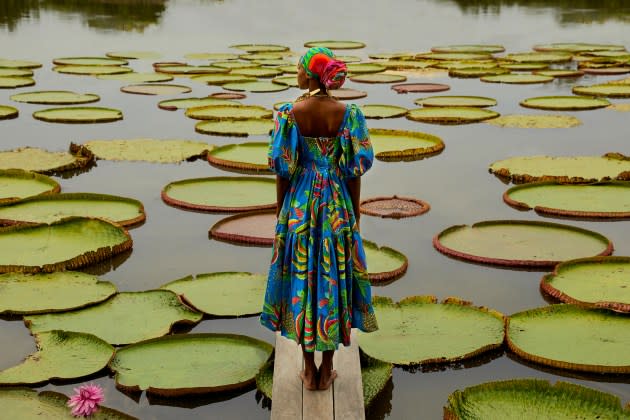Farm Rio Receives B Corp Certification

Like the lush greenery of its homeland of Brazil, the lifestyle and fashion brand Farm Rio has become more rooted in a natural environment by becoming a B Corp-certified company.
The 26-year-old company has compiled a score of 85.5 points for its social and environmental performance and has answered more than 300 questions. Like other multinational corporations, Farm Rio had to meet such benchmarks as allowing information about its performance to be measured against B Lab’s standards and to be made available publicly on their B Corp profile on B Lab’s website. B Lab is the nonprofit that determines B Corp certification.
More from WWD
The 15 Best Watches for Men at Every Price Point, According to Experts
Black Friday Clothing Deals 2023: What to Expect From Nordstrom, Amazon, and More
To be granted and to maintain certification, companies must receive a minimum score of 80 from an assessment of its social and environmental performance, integrate B Corp commitments to stakeholders into company governing documents, and pay an annual fee based on annual sales. Now that Farm Rio has received B Corp certification, it — like all of the other B Corp-certified ones — will need to recertify every three years on order to to retain its status.
The moniker means that Farm Rio has voluntarily met high standards of environmental and social performance, accountability and transparency on different levels. Raw materials, sourcing supply chain, production, philanthropy, treatment of workers and community building are among the factors that can come into play. As of last year, Farm Rio had annual sales of $215 million in Brazil and $85.4 million in other countries.
But the certification calls for more international efforts. Collectively, B Corp companies strive to decrease poverty and inequality and bolster purposeful jobs and communities, and work together internationally to reduce poverty and inequality, strengthen communities, create jobs with purpose, leave behind a healthier environment and use business for the betterment of others. Less than half of the 100,000-plus companies that have applied for B Corp certification have reportedly attained it, since B Lab was started in 2006.
The social and environmental designation was years in the making. In 2017, Farm Rio started a partnership with the Yawanawás, a group of Indigenous people who live in Brazil by supporting them and respecting their heritage and community.
Over the past few years, the company has been literally cultivating the land through a partnership with the nonprofit charity One Tree Planted, which is committed to reforestation efforts across Brazilian biomes, including the Amazon rainforest. Three years after planting the first seed for a tree, the company has planted more than 1 million trees through its “1,000 trees a day, every day” reforestation program. The efforts can be seen in all of the six Brazilian biomes.
In late August, Farm Rio planted a different kind of tree for the opening of a pop-up at Liberty London — a 12-meter tree, which is about 40 feet high, in the department store’s atrium.
Farm Rio has also been working to reduce the CO2 emissions of the numerous collections of apparel and other items that it produces each year. As a result, the collections have become 100 percent carbon neutral, from the print design to orders and deliveries.
On another front, last year Farm Rio established the “Re-Farm Cria” initiative, which is a socioculturally driven project for Brazilian minority youth that champions creativity, sustainability and equality through programming and opportunity. Concurrently, Farm Rio has been working with the Onçafari Association, an organization that promotes the conservation of the environment and contributes to the socioeconomic development of the regions in which it operates, through ecotourism and scientific studies.
The Oncafari Association is also committed to preserving biodiversity within several Brazilian biomes, with the emphasis being on jaguars and maned wolves.
Farm Rio works with that association and other partners to help preserve biodiversity in several Brazilian biomes. The company believes in creating a diversity, equity and inclusion policy and a business model that takes into account everybody’s well-being and the entire customer experience, according to a statement from the Brazilian brand.
Best of WWD

